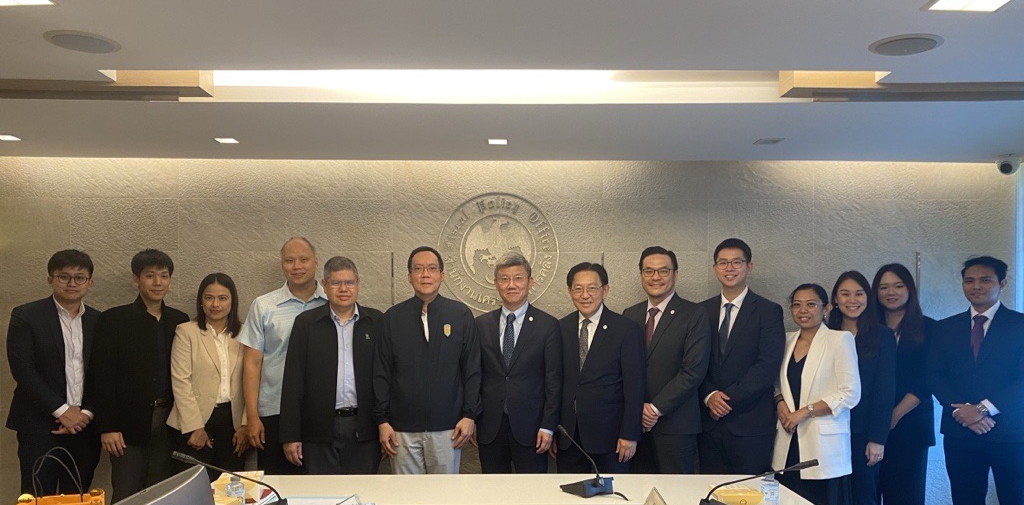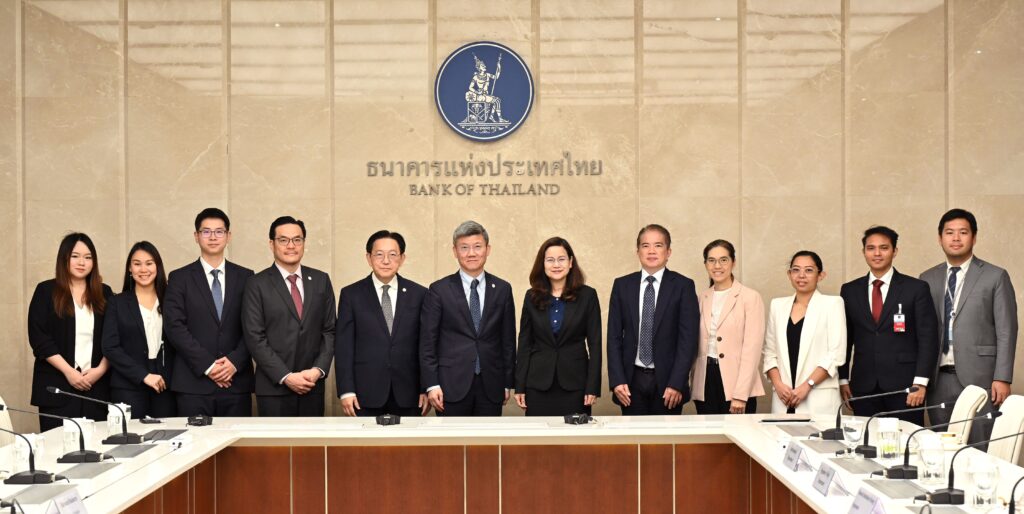
Image: Wongsakorn Napaeng / Shutterstock.com
SINGAPORE, August 14, 2024 – Thailand’s economy is gaining momentum, driven by resilient private demand, continued recovery in tourism, and higher government disbursement. Growth is expected to strengthen to 2.8 percent in 2024 and to 3.4 percent in 2025. However, the economy is at risk of continued growth underperformance unless major structural initiatives and reforms are undertaken.
Over the longer term, Thailand faces challenges in reversing the secular decline in growth potential. This necessitates a concerted effort in attracting FDIs in new growth industries and implementing structural transformation and reforms across all sectors of the economy. At the same time, macro-economic policies should be carefully managed to secure macro-financial stability whilst rebuilding fiscal space.
This is according to the preliminary assessment made by the ASEAN+3 Macroeconomic Research Office (AMRO) after its Annual Consultation Visit to Thailand from July 30 to August 9, 2024.
The mission was led by AMRO Principal Economist Allen Ng. AMRO Director Kouqing Li and Chief Economist Hoe Ee Khor participated in the policy discussions. The discussions focused on Thailand’s recent macroeconomic developments and outlook, risks and vulnerabilities, and policy recommendations to anchor macro-financial stability, rebuild policy space, and revitalize structural transformations to achieve higher growth potential.
Economic developments and outlook
“Thailand’s growth is expected to strengthen to 2.8 percent in 2024 and further to 3.4 percent in 2025, up from 1.9 percent in 2023,” said Mr. Ng. This improvement is underpinned by resilient private demand, tourism recovery, and higher government disbursement, including the anticipated rollout of the digital wallet scheme. “Thailand is at a critical juncture, requiring an urgent shift in policy focus from near-term economic support to bold structural initiatives and reforms to uplift the nation’s longer-term growth potential.”
Although Q1 2024 growth was hampered by weak government spending and exports, private consumption and tourism remained resilient, with tourist arrivals projected to rise from 28.3 million in 2023 to over 36 million in 2024. Government disbursements should pick up sharply following the April budget approval, and the upcoming digital wallet scheme is expected to boost growth in the short term.
Headline inflation is projected to remain low at 0.7 percent in 2024, down from 1.3 percent in 2023, due to energy subsidies and lower prices of food and other essentials, but is expected to rise to 1.6 percent in 2025 as subsidies are gradually phased out and economic recovery strengthens.
Risks and vulnerabilities
Short-term risks include weaker-than-expected recovery in exports and private investment, lower government disbursement, and weaker private consumption due to high indebtedness and slow income recovery. Inflationary pressure could rise due to the partial withdrawal of energy subsidies and external shocks.
Medium-to-long-term risks include public debt sustainability concerns and a secular decline in potential growth, which can make it increasingly difficult to grow out of high indebtedness. Some Thai industries, especially SMEs, also face challenges stemming from the global digital and green transitions, which could potentially impact export competitiveness. Skill gaps and high labor informality further limit the country’s ability to leverage technological progress.
Policy recommendations
Policy priorities should focus on securing macro-financial stability while rebuilding fiscal space in the medium term, and revitalizing structural transformation for higher growth potential in the long term.
The current monetary policy stance is assessed to be appropriate and supportive of the economic recovery while containing the high household debt. Given the downside risks to growth, monetary policy should stand ready to provide policy support should the need arise. AMRO commends the authorities’ efforts to lower household debt and enhance credit guarantee mechanisms.
On fiscal policy, the authorities are encouraged to restore fiscal space through consolidation and tighter governance. AMRO commends the timely Medium-Term Fiscal Framework revisions with clear consolidation targets. Given increasing expenditure demands for infrastructure investment and for meeting the needs of an aging population and climate change, comprehensive revenue reforms are imperative.
To realize higher longer-term growth potential, revitalizing economic transformation will be key. This involves boosting agricultural productivity, attracting more FDIs and shifting manufacturing industries toward new growth areas, upgrading traditional industries, and unleashing the services sector’s potential through infrastructure improvements and nurturing high-end services.
In addition, Thailand needs more focused reforms and stronger implementation to drive economic transformation. Key reform areas include fostering innovation, developing human capital, and upgrading infrastructure. Strengthening execution of existing development plans through stakeholder coordination and realizing approved investment projects is critical for translating reform efforts into actual growth benefits.
The AMRO mission team would like to express its gratitude to the Thai authorities and other participating organizations for their cooperation and candid exchange of views.
About AMRO
The ASEAN+3 Macroeconomic Research Office (AMRO) is an international organization established to contribute toward securing macroeconomic and financial resilience and stability of the ASEAN+3 region, comprising 10 members of the Association of Southeast Asian Nations (ASEAN) and China; Hong Kong, China; Japan; and Korea. AMRO’s mandate is to conduct macroeconomic surveillance, support regional financial arrangements, and provide technical assistance to the members. In addition, AMRO also serves as a regional knowledge hub and provides support to ASEAN+3 financial cooperation.

AMRO Director Kouqing Li, Chief Economist Hoe Ee Khor and the AMRO team met with International Economic Advisor of the Fiscal Policy Office, Warotai Kosolpisitkul, and other senior officials from Thailand’s Ministry of Finance.

AMRO Director Kouqing Li, Chief Economist Hoe Ee Khor and the AMRO team met with Deputy Governor Alisara Mahasandana and other senior officials from the Bank of Thailand.
